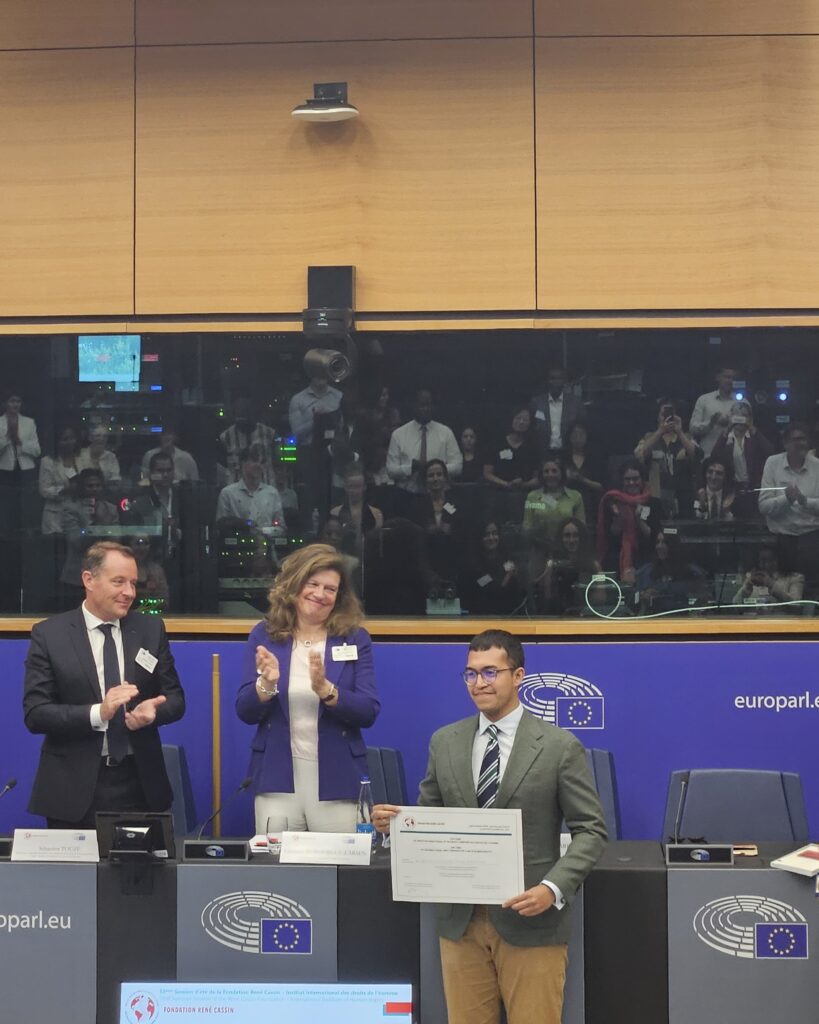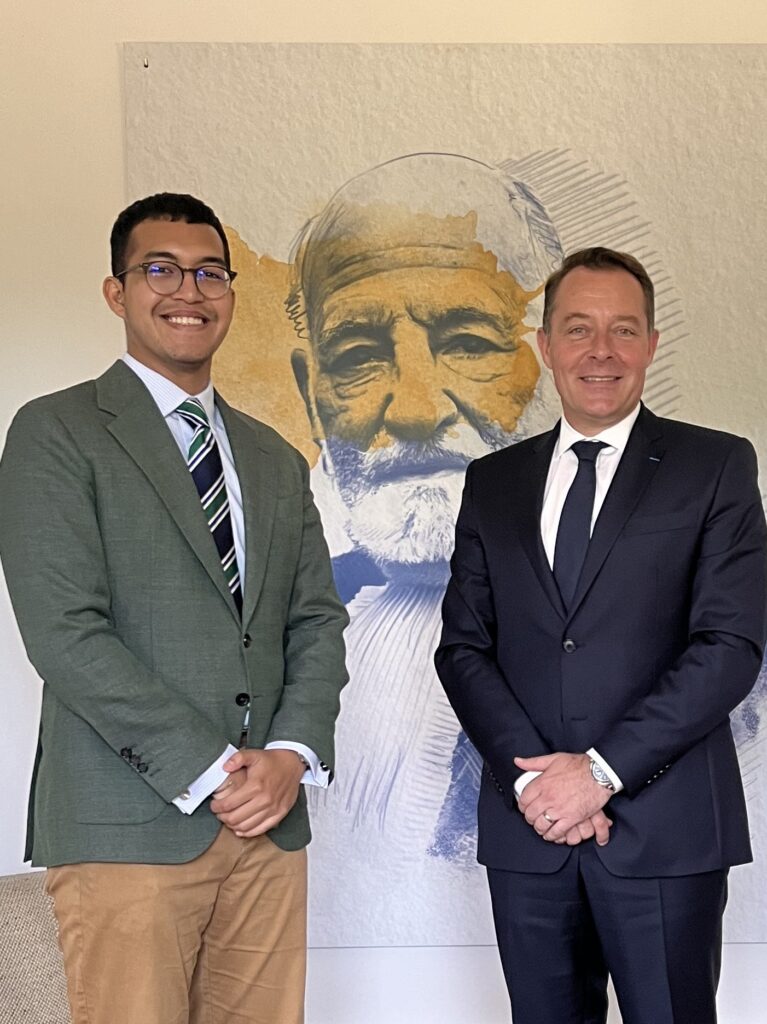Daniel Pakpahan was awarded the René Cassin Foundation Diploma in International and Comparative Human Rights Law during the 53rd Summer Session in Strasbourg
 From 24 June to 5 July 2024, Research Associate Daniel Nicholas Pakpahan attended the 53rd Summer Session on International Human Rights Law organised by the René Cassin Foundation – International Institute of Human Rights in Strasbourg, France. In parallel with the coursework, he also undertook the three tests for the René Cassin Foundation Diploma intended for participants with advanced knowledge in systems of international and regional human rights protection. Being the only one out of ten candidates from the 53rd Summer Session who passed all the Diploma tests, Mr Pakpahan was awarded the Diploma in International and Comparative Human Rights Law during the closing ceremony at the European Parliament in Strasbourg.
From 24 June to 5 July 2024, Research Associate Daniel Nicholas Pakpahan attended the 53rd Summer Session on International Human Rights Law organised by the René Cassin Foundation – International Institute of Human Rights in Strasbourg, France. In parallel with the coursework, he also undertook the three tests for the René Cassin Foundation Diploma intended for participants with advanced knowledge in systems of international and regional human rights protection. Being the only one out of ten candidates from the 53rd Summer Session who passed all the Diploma tests, Mr Pakpahan was awarded the Diploma in International and Comparative Human Rights Law during the closing ceremony at the European Parliament in Strasbourg.
The René Cassin Foundation Summer Session on international human rights law is an annual two-week training program on international and regional mechanisms for human rights protection, held in Strasbourg since 1971. The 53rd Summer Session was taught in French and English and had over 80 participants from Europe, Africa, Asia-Pacific, and the Americas. The Faculty at the Summer Session comprised of leading experts in international human rights law, including current and past mandate holders of the UN Human Rights Council Special Procedures, as well as judges from the regional human rights courts. The Faculty in 2024 included the former President of the European Court of Human Rights, Linos-Alexandre Sicilianos of Greece; the current UN Special Rapporteur on the situation of human rights in Cambodia, Vitit Muntarbhorn; and the former UN Independent Expert on Human Rights and International Solidarity, Obiora C. Okafor.
The Diploma tests are organised separately from the Summer Session and take place over several days. This includes: (i) a 5-hour written exam on a given essay topic; (ii) a one-hour oral pleading based on a practical case simulating a proceeding of a human rights mechanism chosen at random by the candidate, who has 24 hours to prepare it; (iii) and the Grand Oral Presentation, a 30-minute oral presentation in front of a panel of eminent human rights experts on a random topic for which the candidate has two hours of preparation time. A candidate must pass each test consecutively to obtain the Diploma.
Mr Pakpahan wrote his essay on the question, “Can there be differentiation in the fulfilment of international human rights law?” In the next phase, he argued a practical case based on the case law of the Inter-American Court of Human Rights involving indigenous people’s rights and transboundary environmental harm caused by large-scale energy projects. Finally, for the Grand Oral Presentation, he presented on the topic of “Reparation for violations of international human rights law” before a panel of examiners comprising current judges of the European Court of Human Rights – Ivana Jelić of Montenegro, Ioannis Ktistakis of Greece, and Sebastian Rădulețu of Romania – as well as the Director of the René Cassin Foundation, Sébastien Touzé.
Created in 1971, the Diploma has been awarded to 220 candidates representing 70 countries as of 2024. Among the Diploma laureates are past and current judges of international and regional courts, including the International Court of Justice, UN Special Rapporteurs, and international law professors. Mr Pakpahan became the first Diploma laureate from Indonesia and the fourth from Southeast Asia.



